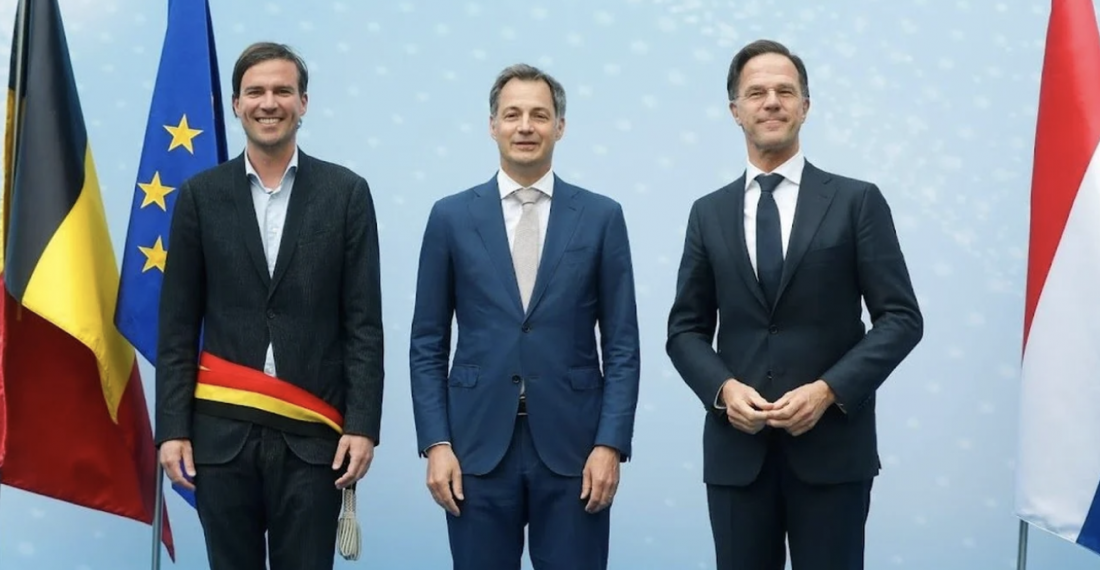On Tuesday (19 April), Belgium and the Netherlands held a joint 'Thalassa Summit' in the Belgian city of Ghent. At the meeting the leaders of the two countries agreed to expand their close cooperation on defence by including more European countries in the process. By working together more and with more countries, they can also better help Ukraine in defending itself against Russia, according to Dutch Prime Minister Mark Rutte and his Belgian colleague Alexander De Croo.
Both countries intend to extend the joint development and procurement of new frigates, surveillance drones and mine clearance vehicles to other European countries.
Rutte announced earlier on Tuesday (19 April) that the Netherlands will send 'heavier material', such as armoured vehicles and other military equipment to Ukraine. Belgium is also considering it, according to De Croo. This is "really the next step", Rutte emphasised. "To go further than we have done so far", now that Russia has started a new attack in eastern Ukraine.
Russia's "insane aggression" in eastern Ukraine increases "the appetite" for closer European defence cooperation, De Croo notes. Even if he finds it a bit twisted, he hopes the Low Countries will now serve as an example for better spending of European defence money. To overcome the "hopeless" fragmentation of defence in the EU countries and get more value for money for their armed forces.
The Netherlands and Belgium have been working closely together in the military field for some time now. The two neighbours guard their shared airspace together and buy naval vessels together, among other things.







